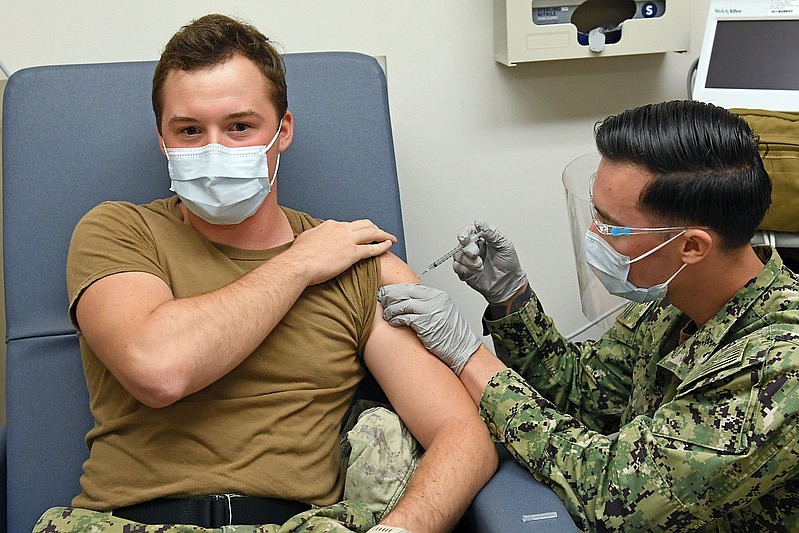Healthcare workers experience rare severe reactions to COVID-19 vaccine
The Idaho Division of Public Health has received reports of two health care workers experiencing severe allergic reactions, also referred to as serious adverse events, after receiving the Pfizer-BioNTech COVID-19 vaccine.
The allergic reactions happened in northern Idaho and the Treasure Valley. Both incidents are ongoing, but one person has recovered fully, and one is hospitalized in stable condition but expected to be discharged.
In the news release, both people had a known history of severe reactions after receiving injectable medication.
“The CDC considers a history of a severe allergic reaction such as anaphylaxis to any vaccine or to any injectable therapy as a precaution, but not a contraindication, to vaccination,” said Dr. Christine Hahn, medical director for the Division of Public Health.
According to Dr. Hahn, “In light of these events, we are concerned about the risk to people with such a history and recommend that anyone with a history of severe reaction or anaphylaxis to any vaccine or injectable therapy defer taking this vaccine until more is known.”
“We will continue to update vaccine providers and the public as soon as we know more,” Hahn added.
Federal, state, and local public health agencies monitor reports of adverse events related to the COVID-19 vaccine.
The Department of Health and Welfare is reviewing data from multiple systems, including the federal Vaccine Adverse Events Reporting System and state reporting systems, where providers who vaccinate and individuals can report any reaction they think is related to vaccination.
The data from the Pfizer-BioNTech vaccine’s clinical trials indicate there is minimal risk to a vast majority of people who will receive the COVID-19 vaccine.
However, there are side effects to the vaccine because it stimulates the body’s immune system. They usually don’t last longer than a day or two.
So far, those side effects have included fever, fatigue, headache, chills, soreness at the injection site, among others.
Currently, 5,665 front line workers have received a COVID-19 vaccine.
“In the meantime, people without a history of severe reaction or anaphylaxis to a vaccine or injectable therapy are still recommended and encouraged to get the vaccine when vaccine is made available to them,” Hahn stated.

